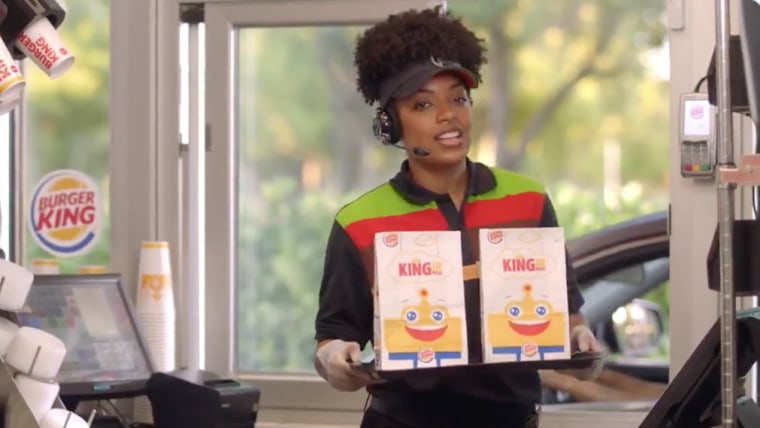From payment relief to blood drives, big brands are switching out their high-energy promotions for more muted social messaging that aims to bring thoughtful pause to Americans — while reminding them of their favorite products.
In the wake of the coronavirus pandemic, advertisers are having to radically rethink how they talk to customers to reflect health concerns, growing unemployment and social distancing policies.
All of this comes at a time when the ad industry is facing an existential crisis: Millions of consumers across the country are sheltering in place; restaurants, stores, and businesses across the country are shuttered.
"When the economy stalls, advertising stalls,” Robyn Nagorsky, an Atlanta-based freelance producer, told NBC News.
Most major brands have pulled back on the hard sell and are instead emphasizing how they are helping, or pivoting to direct-to-consumer sales options. And in some cases, corporate chieftains themselves are emailing letters to customers about what they’re doing.
For fast food advertisers, the overriding message is that delivery is still safe. TV spots for pizza company Papa John’s emphasize, “no contact delivery,” while Little Caesars is using social channels to let customers know they can request doorstep delivery via its app.
An Instagram ad for Burger King features the wording, “minimum contact delivery,” and a social campaign features a woman in gloves, handing a tray at the drive-through window — though social media users were quick to point out that gloves were not being used at every location.
Companies are also tweaking commercials to underscore the new financial realities and consumer anxiety about making big purchases at a time of growing unemployment: One Buick GMC TV spot presents options for zero percent financing and deferred fees for customers addressing very real credit issues.
Ford will run new ads about payment relief, instead of a campaign it had planned for the now-canceled March Madness basketball championship.
Budweiser, a long-term sponsor of the NBA, has also made some significant changes to its advertising, putting its sports dollars into a Red Cross blood drive.
“What we decided to do is really pause some of our communications efforts," Monica Rustgi, vice president of marketing at Anheuser-Busch’s Budweiser unit, told NBC News. "We had products launched at the beginning of March and we decided to not send that message on TV right now. That’s not the priority. We funneled a lot of our messaging to e-commerce.”
Johnson & Johnson’s current on-air commercials reference the company’s support of HIV research and features a narrator saying, “We never stop taking care of you.” Mask manufacturer 3M is using the slogan “Science. Applied to Life,” pointing to its website. Verizon’s TV ads feature engineers, with the tagline: “We are here and we are ready.”
“There’s a shift in communication to togetherness, community, a spirit of union,” said Kimberly Whitler, assistant professor at the Darden School of Business at the University of Virginia. “What I find interesting are the direct company-to-consumer communications. What they are saying is shifting, and there’s a shift in who is saying it. More and more you’re seeing letters directly from CEOs to consumers — which is not typical — in email, or videos of CEOs talking to consumers.”
United Airlines’ outgoing chief executive Oscar Munoz and Delta Air Lines CEO Ed Bastian are among the corporate heads who have written directly to customers to explain what they’re doing through this crisis. Marriott CEO Arne Sorenson also shared a moving video with staff and customers explaining how the pandemic was affecting business.
“I’m seeing a lot of tone deaf advertising that isn’t addressing the current moment,” Marla Kaplowitz, president of the American Association of Advertising Agencies, told NBC News. While she applauds the positive efforts to retool by the likes of Ford, she has also seen fashion retail ads for sales that appear out of context when no-one is visiting stores.
“Now is the time you can be very creative, but you have to think through what are the messages and do you reflect what is currently happening? And not just for today but where things are going in the next couple of weeks," Kaplowitz said.
Some advertisers are altering campaigns in an effort to help stop misinformation. Cold and flu brand Mucinex launched a campaign called “Spread the facts, not fear,” that links to a health information website about coronavirus.
Ultimately, while the global health crisis is exposing those who are not close enough to their customers, it also exposes the more sophisticated marketers who are able to adapt, said Whitler.
